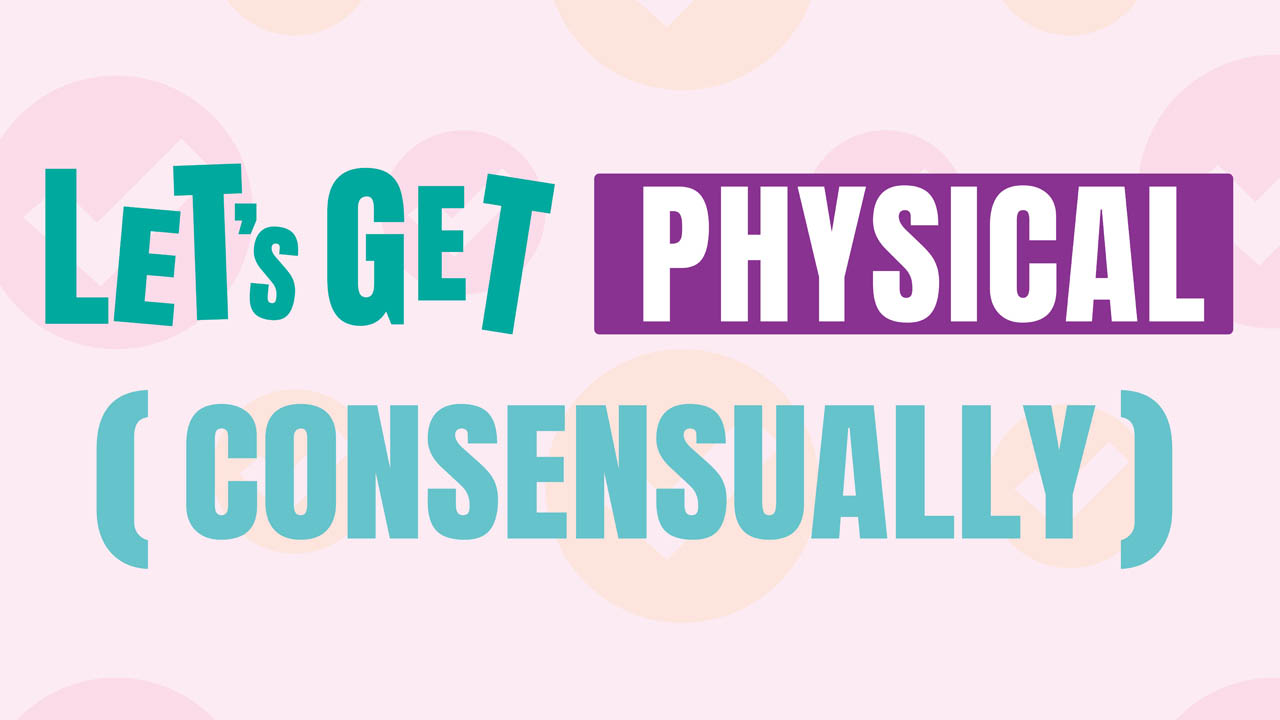Let's get physical (consensually)
 CREDIT: FSU PUBLICATIONS AND COMMUNICATIONS DEPARTMENT
CREDIT: FSU PUBLICATIONS AND COMMUNICATIONS DEPARTMENTTwo years of social distancing has left many yearning for social contact and intimate experiences. With in-person classes happening on campus, college and university students are once again able to meet new peers, make new friends, and in some cases, pursue sexual engagements.
Sexual consent, particularly affirmative consent, is of the utmost importance to allow intimate encounters to be healthy, exhilarating, and fulfilling experiences.
When affirmative consent has not been established, sexual actions involving touching another person constitutes sexual assault. According to a report released by Statistics Canada in 2019, “one in 10 women students experienced a sexual assault in a post secondary setting during the previous year.”
Shannon Dea is a feminist philosopher who works on sex and gender issues and who is currently Dean of Arts at the University of Regina. Dea explained how affirmative consent differs from her experience as an undergraduate in the late 80s and early 90s when the standard line related to consent was “no means no,” and the general message was, if there are no objections, then there is no problem.
“Affirmative consent raises the bar by saying, ‘You can’t assume that silence means consent,’” Dea said. “Your partner needs to actually actively provide consent. And, more than this, that consent needs to be ongoing. We are allowed to change our minds. Giving consent at the beginning of sex isn’t blanket approval for whatever follows.” The difference between the concept of consent and affirmative consent is detailed, but still straight forward and commonsensical. To assist in understanding what affirmative consent is, the F.R.I.E.S. acronym is a helpful mnemonic. The letters stand for five conditions that must be met (all of them) for affirmative consent. The conditions are that consent must be freely given, reversible, informed, enthusiastic, and specific.
Here is an explanation of each of these concepts.
Freely Given
For consent to be freely given, it must not be given as the result of pressure, coercion, or manipulation.
Reversible
Sometimes what we agree to is not, in the moment, what we expect. For consent to be reversible means all participants must honour another participant’s right to revoke their consent and bring an end to the sexual act. More on this later.
Informed
For consent to be informed, each person planning to engage in sexual activity with each other must know what they are consenting to. This includes not only the activities to be carried out, but also sharing information about applicable risks such as sexually transmitted infections (STIs) and involvement with other partners.
Enthusiastic
For consent to be enthusiastic, it must not be given with trepidation but rather with eager willingness. There should be nothing but excitement and willingness to participate when consent is given. When the other four characteristics of affirmative consent are understood and valued appropriately, enthusiastic consent is the only kind of consent that can come from a willing partner. Anything less than an eager willingness is strictly not consent.
Specific
For consent to be specific, it must be understood by those involved to apply to specified acts and the current engagement only. Consent to perform one sexual act does not mean consent to perform another act. Nor does consent given in one encounter extend to another encounter.
There are some commonly raised concerns by well-intentioned persons who want to make sure their sexual partner is having as fulfilling an experience as they are. Some questions are:
- When is it OK and on the contrary not OK to broach sex?
- How does inebriation factor into affirmative consent?
- How does a person discern subtle queues that consent should be reaffirmed or has been withdrawn?
- And how does one make affirmative consent sexy?
Dea stated that to broach sex appropriately, one should be aware of power differentials.
“Bosses shouldn’t broach sex with their employees, profs shouldn’t broach it with their students, and so on…not with minors, obviously, unless you are also a minor…in general, we shouldn’t broach sex with co-workers. People have the right to participate in their workplace without being sexualized…and not when the other person is intoxicated.”
College and university cultures still lean heavily toward alcohol and drug use which both impair cognitive functioning and in turn, the ability to make sound decisions. When someone is intoxicated to the point where their judgement is compromised, they cannot express “no,” or cannot understand the scope of what they are consenting to (i.e., if any of the F.R.I.E.S. conditions are not or cannot be met), then there is no consent. Full stop.
When affirmative consent is given, no well-intentioned participant wants the sexual encounter for which consent has been given to continue if their partner no longer consents.
“No means no, but so does, ‘I’m not sure about this,’ or pulling your head away or rolling over to the other side of the bed, or getting a glass of water,” Dea said. “People use lots of cues to cool things down. We owe it to our partners (and ourselves!) to be attuned to those cues.”
Finally, it may be of concern that obtaining affirmative consent will ruin the mood and make a sexual engagement stale, unexciting, or less passionate. On the contrary, affirmative consent has all the potential to be wonderfully sexy.
“It takes practice!” Dea said. “But once you get the hang of it, it can be part of what’s sexy about the encounter.
“Being specific about what you would like to do with your partner and asking if they’re into it can be hot! Being able to bring sex into the light and talk about it in a detailed way that ensures all partners are into it opens an exciting range of possibilities.”
















